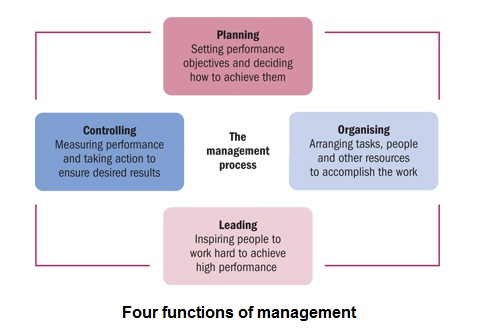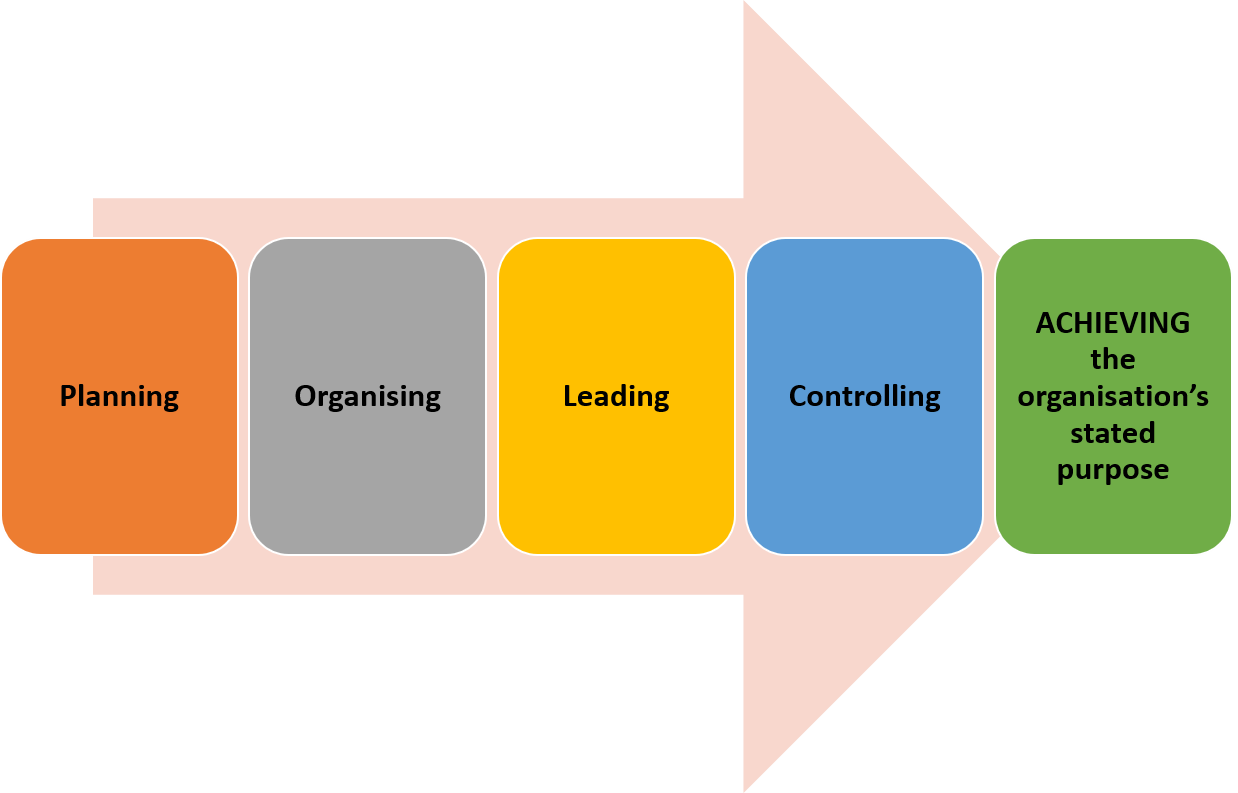Click here to view a video that explains the management process.
A common functional description of management is the process or systematic way that a manager carries out the activities necessary to achieve organizational goals. This requires the manager to plan, organize, lead and control activities, utilizing all organizational resources within the context of his or her organization’s environment (see Figure below). These functions involve the following activities:

Planning: Planning activities involve analyzing the organization’s current situation including the external environment, identifying and prioritizing appropriate organizational goals and determining the necessary actions required to achieve these goals.
Organizing: Organizing activities include the identification and division of the work to be undertaken to accomplish the organizational goals and the allocation and co-ordination of necessary material and human resources.
Leading: Leading activities are the ways in which managers direct and influence their subordinates to perform the tasks that are essential for achieving the organizational goals.
Controlling: Controlling activities involve monitoring and evaluating actual performance compared to set standard in order to ensure that the organizational goals are in fact being reached.

For Which Functions are the Managers Responsible?

The manager’s functions can be summarized as follows:
Planning refers to the work which managers must do beforehand in order to determine the procedures related to a task/project.
Control refers to the work done by managers in evaluating the actual results which are achieved in the work, in order to see to it that set objectives are achieved.
Induction of employees refers to the planned introduction of such newcomers to their new employer, working environment and work.
Training aims at equipping lower-level employees with the necessary knowledge, skills and attitudes needed to do the work.
Motivation (also known as INSPIRATION) refers to the encouragement and persuasion of lower-level employees to go on to the required action(s).
Communication refers to the transmission and reception of information between people in order to establish comprehension (understanding).
Leadership refers to the process through which others are influenced to act efficiently in order to achieve objectives.
Performance Evaluation refers to the systematic evaluation of a person’s work performance with an eye on his further development.
Discipline refers to those positive and negative measures which the manager takes in order to correct lower-level employees’ unsatisfactory behaviour.
Working Relations refers to the creation of a climate (condition) in which people can work together in harmony and as a team.
Delegation refers to the deliberate granting of authority to a lower-level employee for the fulfilment of certain responsibilities.
Grievance Management refers to the measures taken by the manager in order to identify grievances amongst lower-level employees and to manage such grievance(s) without delay to the person/people’s satisfaction.
These functions cannot be seen in isolation, as they all complement each other. Some functions are normally undertaken simultaneously, and some functions also serve as a prerequisite when others are considered.